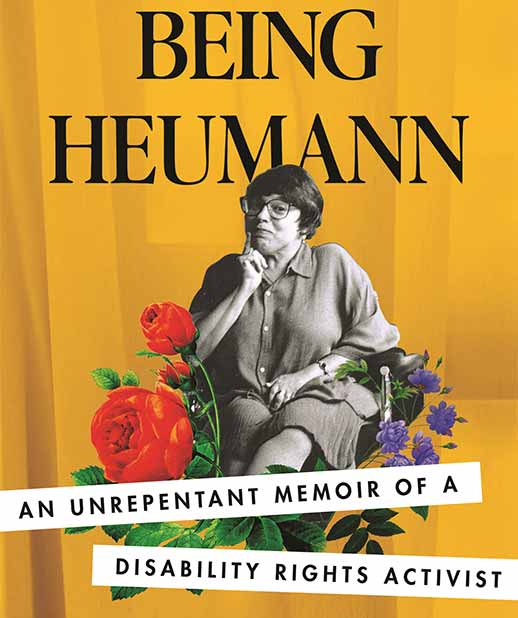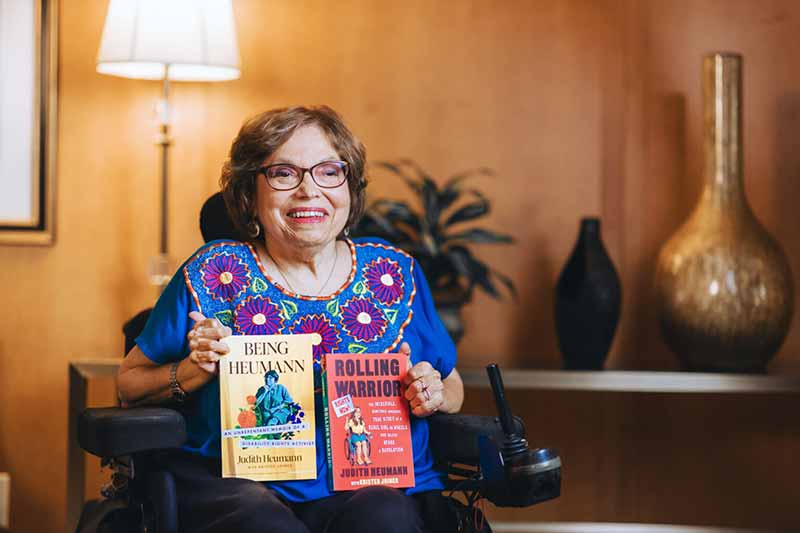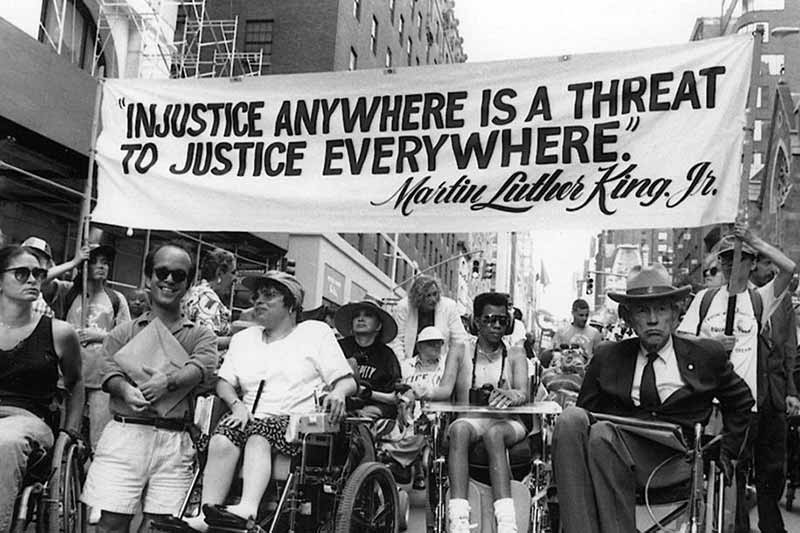First Year Summer Reading Program
Your Westminster education begins even before you set foot on our beautiful campus by participating in the First Year Summer Reading Program. This year’s selection is “Being Heumann: An Unrepentant Memoir of a Disability Rights Activist,” by one of the most influential disability rights activists in U.S. history, Judith Heumann.
Because every first-year student reads this same book, the summer reading and the related assignment provides a common intellectual experience for you to share with your future classmates and professors. Engaging with this book will give you a sense of what college-level reading and writing is like, as well as serving as the basis for classroom discussions and campus events this fall.
Your experience with this book will set you on the road to a liberal arts education by challenging you intellectually and personally, and helping prepare you to make contributions in our rapidly changing world.
Your assignment is to read Being Heumann and to write a response essay addressing one of the three questions provided below, making sure to follow the stipulated guidelines and directions. A copy of the book will be provided to you at New Titan Days.
As you read Being Heumann, consider the ideas it raises about community, persistence and the status quo, using the essay prompts to guide your thinking.
In addition, if you need more context to help you engage with the book consider reviewing these resources about the author and the events behind her story.

Image credit (Penguin House Common Reads)
Judith Heumann (1947–2023) was an internationally recognized leader in the Disability Rights Independent Living Movement. She served in the Clinton and Obama administrations, and she was the World Bank’s first adviser on disability and development. Heumann was the author of a memoir, Being Heumann, and her story was featured in the Netflix documentary Crip Camp: A Disability Revolution (2020). Source: Penguin House Common Reads
Judith Heumann’s Ted Talk: Our fight for disability rights -- and why we're not done yet

(image credit https://judithheumann.com)
Paralyzed from polio at eighteen months, Judith’ struggle for equality began early in life. From fighting to attend grade school to later winning a lawsuit against the New York City school system for denying her a teacher’s license because of her paralysis, to leading the Section 504 Sit-In, which led to the creation of the Americans with Disabilities Act. Candid, intimate, and irreverent, Judith Heumann’s memoir is a story of one woman’s lifelong battle – from the streets of Brooklyn and San Francisco to inside the halls of Washington – to make real a world in which we all belong. Source: Penguin House Common Reads
Being Heumann | Fighting for justice by John Beaubien with Ability360
Disability Rights Education and Defense Fund | 504 Sit-in Resources

(image credit https://judithheumann.com)
By Monday, August 18, upload your essay to the dropbox on the Summer Reading page on Desire to Learn.
Click on Dropbox from the menu at the top of the page. Then, select “Being Heumman Summer Essay” and use the uploader to submit your essay.
Judith’s memoir recounts many shared experiences of achieving social justice in the realm of disability rights. She repeats throughout that none of it could have been possible if not for the community and collaboration that was prominent in what she calls a “disability culture.”(23)
Use your essay to reflect on the ways all the different individuals, groups, and organizations built a community of support for the Section 504 demonstration at the federal building or in other aspects of Judith’s experiences.
In your answer consider the kinds of actions people took which made Judith’s community visible to you and then describe a situation in your own life where others helped you to build a culture of community.
Judith’s memoir reflects on a key message she received from her parents during her childhood: “I’d been taught to do whatever it took to get my point across, to question authority, to stand up for myself.” (161)
Use your essay to describe what Judith’s story indicates about the importance of persistence in achieving results and changing the world.
In your answer include who and what helped Judith stay persistent and continue to fight despite countless setbacks and then describe a situation in your own life where persistence helped you to achieve your goals.
In writing about her childhood and early adult years, Judith describes being frustrated by obstacles that most people didn’t notice. It was a time when it was considered “normal” for children with disabilities to be excluded from school and for buildings to lack access ramps; most people didn’t stop to question those practices unless they affected them directly.
Use your essay to reflect on the fact that the successes of the disability rights movement can make it difficult to comprehend an earlier time when what we take for granted wasn’t commonplace.
In your answer address what you found most surprising about the differences between Judith’s times and our own and then describe what you think future generations would find most surprising about things we overlook or take for granted when they look back at how we live today.